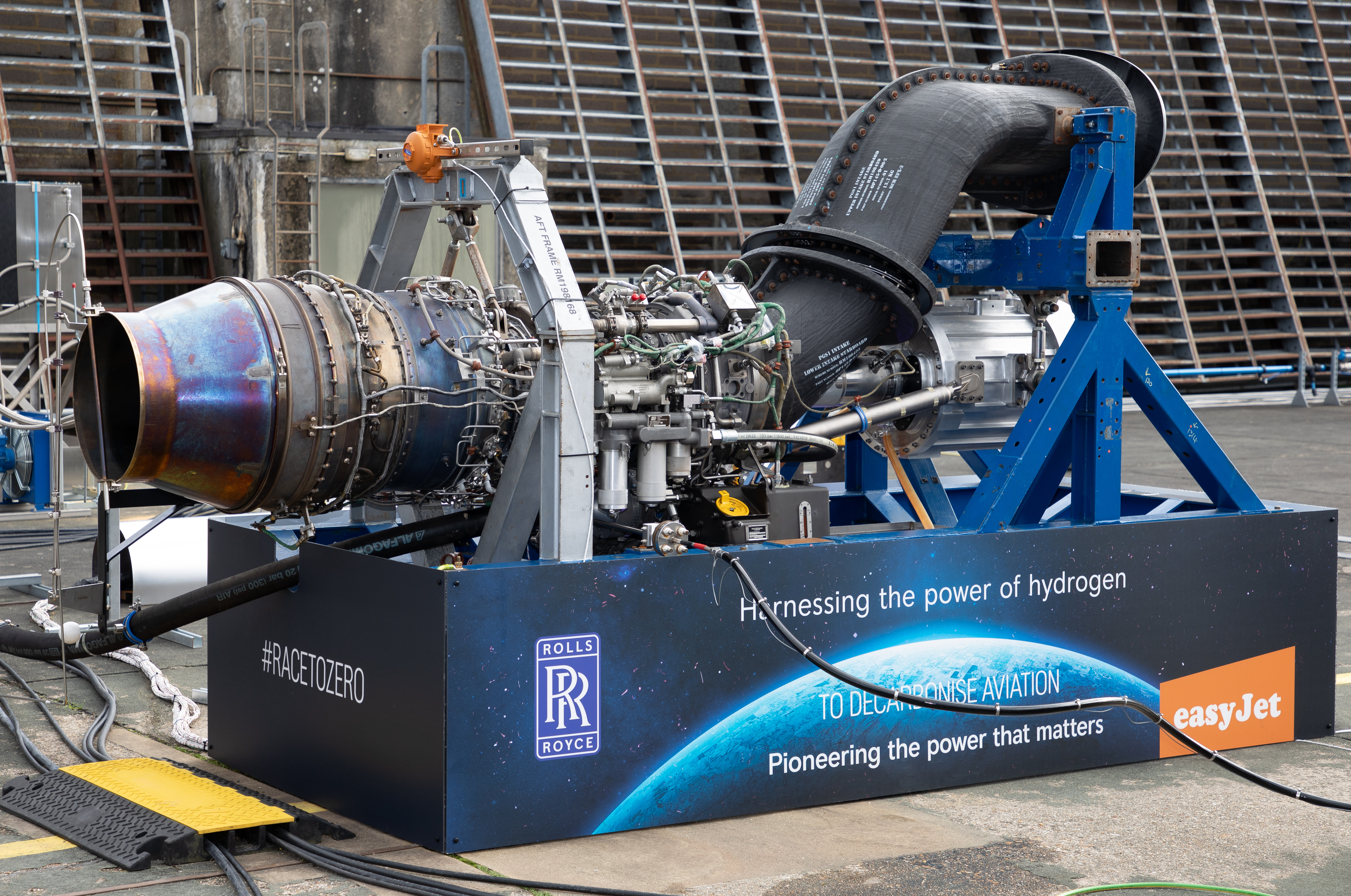Rolls-Royce Performs Successful Test Of World's First Jet Engine Fueled By Green Hydrogen
Hydrogen produced via wind and tidal energy holds promise for the future of transportation.
Air travel is a dirty business. To clean things up, engine manufacturer Rolls-Royce partnered with European airline EasyJet to test a jet engine designed to run entirely on renewably manufacturer hydrogen fuel this week. The test was a hopeful success, but there are still many hurdles to fly over before green air travel becomes a reality.
Rolls-Royce (not to be confused with automotive manufacturer Rolls-Royce) and EasyJet announced their successful test in a press release Tuesday. This engine, a Rolls-Royce Pearl 15 normally found on AE 2100-A regional aircraft, is an early concept of course. But it proves jet travel is possible using truly green renewable fuels. It was powered by hydrogen fuel, which was created using only tidal and wind power. This is an extremely costly way to produce hydrogen but Rolls-Royce considers a fuel as only as green as its production.
There are still plenty of problems with hydrogen for ground and air-based travel however, including the inefficiency of the fuel (fossil fuels provide literally more bang for your buck.) According to the journal Nature Climate Change, producing and burning hydrogen-based fuels requires five times more electricity than is needed than for battery-powered cars. If that hydrogen is produced using fossil fuels, we've just added to the climate change problem. Still, automotive manufactures are seriously considering hydrogen fuel cells as a step away from fossil fuels. Toyota has had some success with the technology via the Mirai—one of the only commercially available hydrogen cars on the market today.
Both Rolls-Royce and EasyJet are committed to achieving net-zero carbon emissions by 2050. It's a good thing they're getting started now, as development will take decades. Hydrogen has always held promise as a fuel for transportation, especially in larger trucks, but it is prohibitively expensive to manufacture, store, and distribute. While Rolls-Royce is also experimenting with battery powered aircraft, electric or electrified planes don't seem to be the way to go as heavy battery packs are definitely not what you want when trying to get off the ground.
